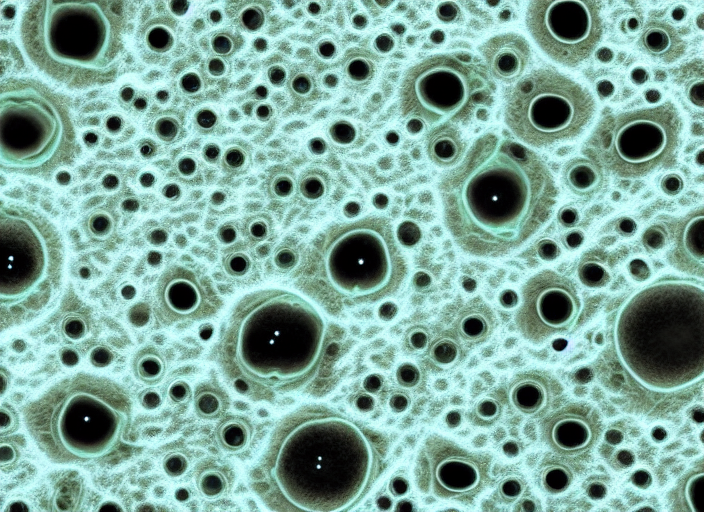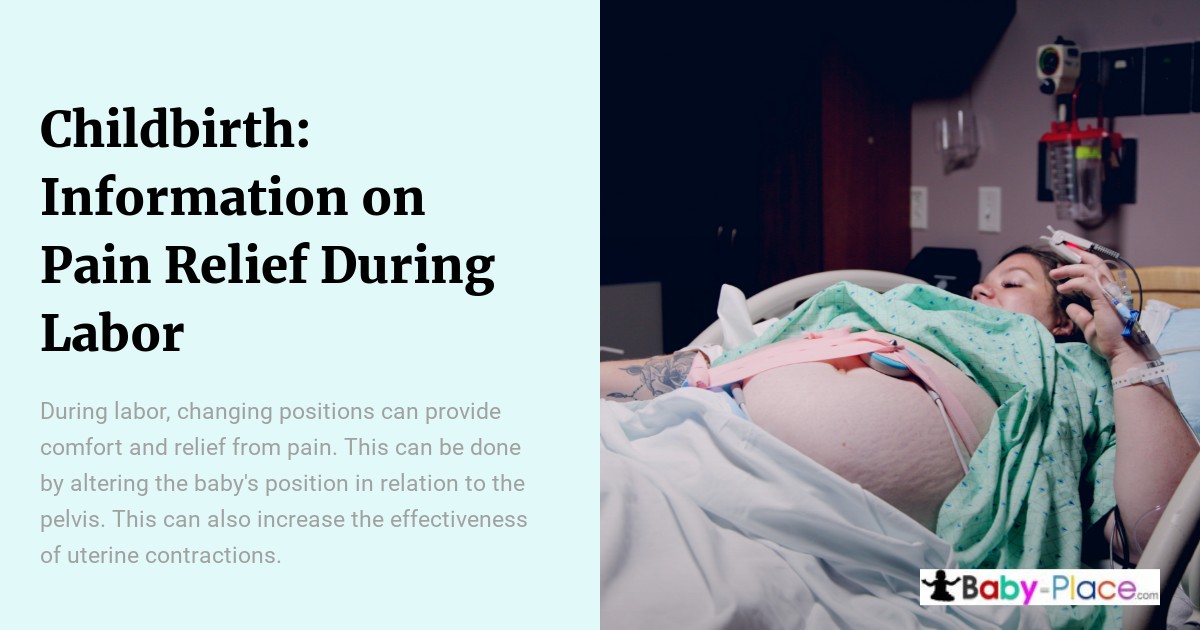
Glutathione can be taken in supplement form during pregnancy. It is included in some prenatal supplements to support the increased demand for glutathione during pregnancy.
A healthcare professional should always be consulted before taking any dietary supplements while pregnant or nursing, especially if there are known allergies or medical issues. Any medical safety advice will depend on a person’s needs and medical history.
What is Glutathione?
Glutathione is a naturally occurring molecule found in every cell of your body.
It comprises three amino acids:
- Cysteine
- Glycine
- Glutamic acid
Glutathione has a major benefit because it plays a large role in detoxification, energy production, and immune function.
Glutathione is also important for liver detoxification, antioxidant protection, and neutralizing free radicals that cause cellular damage.
Sources of Glutathione for Pregnant Women
The best sources of glutathione are found in animal products such as meat and fish. The glutathione molecule is also abundant in fruits and vegetables, although not as much as in meat.
Consuming liver once per week is an easy way to increase intake of this important antioxidant. Glutathione is found in high quantities in organ meats like liver.
Vegetarian sources of glutathione include:
- soy
- beans
- spinach
- broccoli
- asparagus

Fresh fruits and vegetables also contain folic acid, which is critical for fetal development. Folic acid can be found in green, leafy vegetables, citrus fruits, berries, and melons.
Are There Any Risks When Taking Glutathione Supplements During Pregnancy?
There are minimal risks of taking glutathione supplements during pregnancy, as long as the supplements are used as directed. It is a safe antioxidant that supports immune function and detoxification, which are important processes for both mother and fetus. Taking glutathione is safe both for the mother and the baby.

Some side effects have been reported with the use of glutathione supplements, including:
- Nausea: There is a chance of nausea or stomach upset when taking glutathione supplements.
- Skin rash: Mothers may develop a skin rash or other allergic reactions after taking glutathione supplements.
- Headache: Headaches can be a side effect of a glutathione supplement.
- Diarrhea: Some people may experience diarrhea as a side effect of a glutathione supplement.
- Interactions with medications: Glutathione supplements may interact with certain medications, including acetaminophen and aspirin.
It is important to keep in mind that these side effects are not common and usually occur only in a small percentage of people taking the supplement. It is always recommended to consult with a healthcare professional before taking any supplement and to monitor any symptoms you may have after taking it.
These symptoms are usually temporary and can occur because of an overdose or allergy to the supplement. Adverse reactions usually pass within a few hours or days as the body becomes accustomed to the supplement. It is best to start with small doses and gradually increase the dosage. This will decrease the risk of side effects.
There is no medical evidence suggesting that glutathione supplements can cause miscarriage in pregnancy. However, if you are concerned, then you are strongly advised to speak with your healthcare professional.
Administering Glutathione Intravenously
There are also possible adverse reactions if glutathione is taken intravenously. This includes low blood pressure, decreased heart rate, and shock caused by improper pH levels in the blood (acidosis or alkalosis). However, glutathione IV administration is not recommended except in extreme cases when oral or topical forms are ineffective.
Glutathione Supplements: Recommended Dosage
The recommended dosage for glutathione varies depending on the condition being treated, the person taking it, and other medications being taken. For pregnant women with severe cravings or unusual weight loss during pregnancy, medical professionals recommend one 300mg pill once per week.
For severe cases, glutathione is given intravenously as 50-100mg per kg body weight. This treatment should be considered only when an oral supplement has not proven effective and if the person has no known allergies or hypersensitivity to glutathione.
Again, as a word of caution, always consult with a medical professional before taking any form of supplement. It’s important to understand that glutathione supplements have different forms, which should be taken as directed by a healthcare professional. These include capsules, oral powder, glutathione injections, topical application, or transdermal patches.
What Does Glutathione Do for the Body?
Glutathione plays a major role in the health of a pregnant woman and child. It is safe to take both for the mother and the baby.
To appreciate the importance of glutathione in pregnancy, it is important to understand how cells detoxify harmful substances.
What is Detoxification?
Detoxification is a process that involves breaking down potentially harmful toxins or substances. Cells must be able to remove these substances from the body before they can injure cells, tissues, and organ systems. In this way, glutathione protects pregnant women and babies from damaging environmental exposures such as pollution and cigarette smoke.
Glutathione works by binding itself to toxins and making them water-soluble, so they can be removed from the body safely without disrupting healthy cellular function. If a cell becomes overloaded with toxins, glutathione transfers the toxin to a “conjugate” molecule composed of two parts.

The first part attaches itself to glutathione and the second part attaches itself to another group that helps detoxify the cell. It is important to note that not all cells naturally produce enough glutathione for adequate detoxification.
Benefits of Glutathione in a Healthy Pregnancy
A mother’s glutathione level helps the healthy development of a fetus. For this reason, pregnant women need to have a healthy diet with adequate amounts of glutathione-boosting foods.
Aside from this, increasing glutathione in the mother’s body may help prevent certain pregnancy complications, such as preeclampsia and premature birth.
A study done with women found that when glutathione levels were low at the beginning of a pregnancy, there was an increased risk for preeclampsia. Similarly, women who had insufficient glutathione levels were found to be at a higher risk of delivering their babies prematurely.
Glutathione Helps in Fetal Development
Some research suggests that glutathione levels are lower during pregnancy, leaving the fetus at risk of cellular damage. Glutathione deficiency is associated with fetal growth restriction and pre-term birth. Because this molecule plays a role in immune function, low glutathione levels have also been linked to an increased risk of placental inflammation.
When a woman has a low glutathione level when she becomes pregnant, it may be due to poor detoxification in the liver or decreased intake of foods that contain this molecule. Therefore, proper diet and supplementation are needed to boost glutathione levels in pregnancy.
Three Crucial Processes in Pregnancy
A healthy pregnancy involves three crucial processes:
- Embryogenesis (the development of the embryo)
- Placentation (the formation and development of the placenta)
- Fetal metabolism.
All three processes require heavy energy production, and all three processes depend on glutathione for their success.
Additionally, it is essential to embryonic development because it involves cell division, DNA synthesis, cellular differentiation, and the maintenance of cytoplasmic integrity.
A large increase in glutathione is needed when the placenta attaches itself to the uterine wall.
Keeping the fetus healthy
The fetus gets most of its oxygen and nutrients from the mother, so this process requires a lot of energy production from the mother. Glutathione helps to maintain both cellular energy levels and redox status during this crucial time for growth. Studies have shown that glutathione supplementation can increase both red blood cell GSH levels and reduce free radical damage in pregnant women.

Playing a Role in Maternal Health
While most research has focused on the role glutathione plays in fetal health, studies suggest that this molecule also influences maternal health. Glutathione helps maintain endothelial function (the ability of the cells lining the blood vessels to dilate and contract) during pregnancy.
As glutathione decreases, the lining of the blood vessels becomes less pliable and more resistant to widening when necessary for increasing oxygen transfer to tissues. This results in a higher risk of cardiovascular disease and hypertension (high blood pressure).
Glutathione also helps to reduce insulin resistance, inflammation, and oxidative stress in pregnant women. Higher levels of glutathione may help protect against gestational diabetes and preeclampsia by regulating two hormones related to insulin sensitivity: adiponectin and plasminogen activator inhibitor.
These hormones influence insulin sensitivity, vascular health, and fibrinolysis (the process of breaking down clots).
Preventing Fetal Oxidative Stress
Because of the demand for oxygen and nutrients in fetal development, there is a greater risk of oxidative stress during pregnancy. Glutathione serves as an antioxidant to help protect the mother and fetus from any harmful reactive oxygen species (ROS) that can cause cellular damage.
Its antioxidant properties make glutathione essential for fetal metabolism. Glutathione helps form amino acids, which are the building blocks of proteins. It also protects against damage to the mitochondria (the energy centers that allow cells to function).
Glutathione’s antioxidant activity can also inhibit fetal lipid peroxidation (damage to the cell membrane that makes it less efficient). Additionally, glutathione is currently being studied for its potential in preventing preeclampsia.
Helps Maintain Energy Levels
The normal fetus uses approximately 75% of the total oxygen transferred from the mother. Because of this, energy levels are constantly being broken down through cellular metabolism so they can be reformed to meet the oxygen demand.
Glutathione helps maintain both cellular energy levels and redox status during this crucial time for growth. During pregnancy, glutathione synthesis is increased in order to maximize its antioxidant activity and energy production.
Regulating Hormones
Glutathione can regulate hormones like progesterone and estrogen by decreasing their levels. It also increases the production of cortisol, which serves as a precursor to endogenous progesterone and testosterone synthesis.
Glutathione can be repaired inside cells through the use of its metabolites: glutathione disulfide (GSSG) and reduced glutathione (GSH). These intermediates increase cellular resistance to oxidative damage.
Its levels are also involved in the synthesis of sex hormones during pregnancy. Therefore, keeping glutathione at optimal levels may help prevent complications like ovarian hyperstimulation syndrome (OHSS) and gestational trophoblastic disease.
Enhances a Strong Immune System Function
Glutathione helps support an infant’s developing immune system by inhibiting histamine release during mast cell degranulation. It also regulates the activity of microglia in the brain, which are responsible for scavenging dead neurons and any foreign invaders.
Glutathione modulates cell-mediated immune responses like macrophage activity, T-cell proliferation, and NK (natural killer) cell activity in maternal tissues. This makes glutathione essential for proper fetal development.
Maintaining Fetal Blood Flow
As the fetus grows throughout pregnancy, there is a greater demand for blood flow, which can lead to a decreased uterine artery pulsatility index (a measure of blood flow).
Consumption of glutathione helps maintain this critical blood flow by relaxing vascular smooth muscles. It also decreases the proliferation of endothelial cells in the uterus, which reduces its resistance to increased pressure.
Additionally, glutathione can help reduce carcinogenesis by inhibiting cyclooxygenase activity.
Constituent of One-Carbon Metabolism
Glutathione is used in the methylation cycle to help transfer single carbon units for processing into nucleic acids, proteins, phospholipids, and other important biomolecules. It also helps protect against oxidative stress by conjugating to GSH, neutralizing free radicals.
Since glutathione is a substrate for many enzymes, it can help metabolize carbohydrates, proteins, lipids, and nucleotides.
Regulating Fetal Blood Pressure
It has been found out that glutathione has also been used to regulate blood pressure in animal studies by reducing the formation of angiotensin II. This leads to a decrease in vascular resistance and an increase in plasma volume.
Additionally, glutathione inhibits aldosterone synthesis. This reduces sodium reabsorption and prevents water retention, which also decreases blood pressure.
Additional Notes About Glutathione and Healthy Pregnancy
Glutathione supplements are inexpensive to ensure mother and baby stay healthy during the 9-month period. For those unable to benefit from glutathione supplements or whose body is not absorbing them properly, dietary changes will help avoid the depletion of glutathione levels.
Eating a diet high in antioxidants and low in sugar may provide similar benefits as taking extra supplements.
Taking large amounts of vitamin C can also prevent glutathione levels from dropping because vitamin C helps the dermal cells to produce glutathione. Not getting enough vitamin C can cause dermal tissues to weaken, which often leads to dermatitis and skin inflammation.
Additional research is always necessary, but glutathione supplements are generally safe for pregnant mothers who want added support for their changing bodies.
The Bottomline
One of the biggest responsibilities a woman can take on is carrying a child. It’s important to take extra precautions during this delicate time and keep yourself healthy for your baby. Prenatal vitamins, proper diet, and exercise all play a key role in sustaining your health.
Supplementing with glutathione can also be an effective way to ensure you and your baby stay well during the 9 months of pregnancy, but always consult with a doctor before beginning any supplements or routines. Other options may work even better for you and your body. Always remember to do your research and talk to medical professionals before trying anything new.
Lastly…Alternative use of Glutathione
Glutathione is commonly used in whitening and lightening treatments and anti-aging treatments.
It can be given topically in creams and lotions or intravenously by injection.
It is also used in a treatment called “glutathione IV drip,” in which glutathione is infused through an IV drip. It is also used concurrently with other treatments, such as chemical peels and laser treatments, to enhance results.
Frequently Asked Questions:
Is it safe to take glutathione supplements during pregnancy?
Yes, glutathione supplements are generally safe to take during pregnancy when used as directed. They support immune function and detoxification, which are important for both mother and fetus. However, it is always recommended to consult with a healthcare professional before starting any supplement during pregnancy.
What are the potential side effects of taking glutathione supplements?
Some potential side effects of glutathione supplements include nausea, skin rash, headache, diarrhea, and possible interactions with medications like acetaminophen and aspirin. These side effects are not common and usually temporary. It is best to start with small doses and consult a healthcare professional if any adverse reactions occur.
What are the best dietary sources of glutathione for pregnant women?
The best sources of glutathione are animal products like meat and fish, especially organ meats such as liver. Vegetarian sources include soy, beans, spinach, broccoli, and asparagus. Fresh fruits and vegetables also provide folic acid, which is crucial for fetal development.
How does glutathione benefit a healthy pregnancy?
Glutathione supports detoxification, energy production, and immune function, which are crucial for both mother and fetus. It helps prevent complications like preeclampsia and premature birth, supports fetal development, and maintains maternal health by regulating hormones and reducing oxidative stress.
What is the recommended dosage of glutathione supplements for pregnant women?
The recommended dosage varies depending on individual needs and medical conditions. For general use, one 300mg pill once per week is often suggested. In severe cases, intravenous administration may be considered, but only under medical supervision. Always consult a healthcare professional before taking any supplements.





















